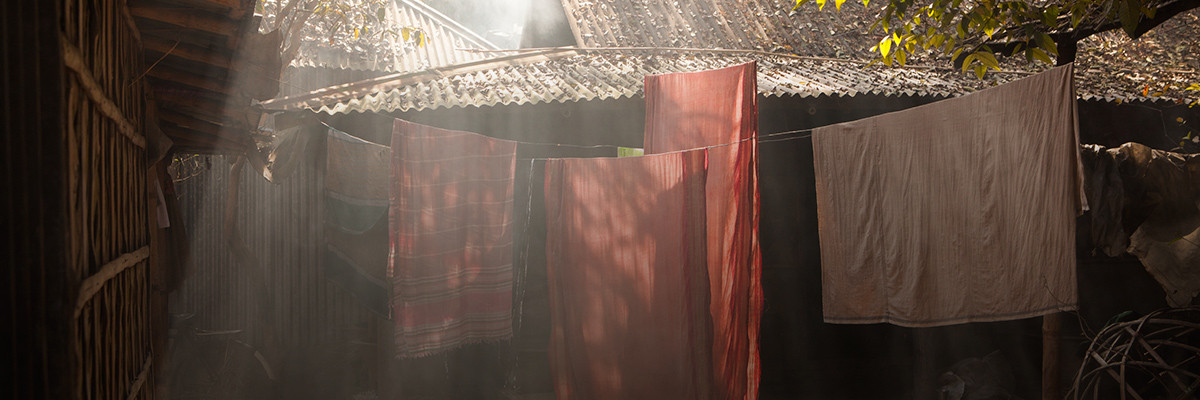
Authors
-
Samantha Harris
Former Associate Director, BSR
Bangladesh is ranked among the countries most vulnerable to climate change. Last week, I saw that risk firsthand while attending the 10th annual Community-Based Adaptation conference in Dhaka. In conversations with climate and community adaptation experts, as well as through field trips into the city, a clear message prevailed: Companies must do more to build climate resilience by investing in communities and in those most disproportionately affected, including women. This will, in turn, generate business benefits.
The conference included a field trip to an informal settlement in Dhaka called “Medical Slum,” which allowed participants to see firsthand how climate change was negatively affecting the community. Unpredictable weather patterns such as flooding and drought, higher summer temperatures, greater severity of storms and typhoons, sea level rise, and disease vectors are all threatening residents’ livelihoods, jobs, food and water provisions, and health. Due to lack of waste and sewage regulations, trash and debris often block the drainage system—which is already a health risk from pollution—and results in a phenomenon called “water-logging,” especially during heavy periods of rain.
As we heard from the community locals and during the event, existing social and development problems have been further exacerbated because of rural migration to Dhaka—a staggering 5 percent per year—due to climate impacts on farms and in the countryside. This means that already vulnerable or disadvantaged groups, such as women, are at even greater risk of both social and climate impacts. And in a country like Bangladesh, where women make up 80 percent of the garment industry, this has significant implications for families, communities, and businesses.
The good news is that there are many opportunities for business to enhance not only its own adaptive capacity, but also that of women and communities. One way companies can build climate resilience is by investing in local communities. These opportunities can range from infrastructural investments to empowerment initiatives. For example, companies can:
- Provide physical infrastructure, like floor barriers and proper drainage, to prevent clogging and overflow of unsanitary water
- Deliver basic needs and resources, including water, access to energy, and healthcare
- Offer insurance, microloans, or grants to community members, especially women, to further increase their income and financial stability.
- Create community and women’s groups, which boost collaboration, amplify the collective voice, and build communal bonds that increase the community’s ability to respond to risks.
- Offer trainings, education, and access to information like early warning systems to help the community prepare for and respond to natural shocks and disasters.
BSR is developing a private-sector resilience framework that we will release this year, building on our underlining climate strategy and previous reports outlining resilience case studies in Thailand, as well as company supply chain risk. Additionally, through our Resilience and Adaptation Initiative (READI), we’re building collaboration among companies and leading adaptation experts on designing strategies to enhance their own adaptive capacity as well as broader societal resilience. And our women’s empowerment work, including our new Investing in Women collaborative initiative and the HERproject, which has worked in supply chains in Bangladesh for years, are also working to build gender equality and community resilience.
As global communities begin to increasingly face the effects of climate change, we are witnessing the growing intersection of development, gender equality, human rights, and climate issues. There is no silver bullet solution to these tremendously complex global challenges, but companies can begin to seek out a range of approaches to tackle them, from investing in local communities to advocating for ambitious global climate policies.
Let’s talk about how BSR can help you to transform your business and achieve your sustainability goals.